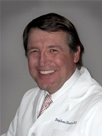Dr. Stephen Sinatra - From Cholesterol Choirboy to Non-Believer
 Like Dr. Graveline, I have been reporting on the dangers of cholesterol-lowering statin drugs for years. In my clinical practice I weaned many new patients off statins who had no business being on them in the first place.
Like Dr. Graveline, I have been reporting on the dangers of cholesterol-lowering statin drugs for years. In my clinical practice I weaned many new patients off statins who had no business being on them in the first place.
Many were experiencing side effects that their doctors either dismissed or didn't recognize as related to statins. After starting such patients on a program of targeted nutritional supplementation, the vast majority were able to maintain good heart and overall health without the need of statins.
I didn't prescribe statins to patients unless they had serious heart disease, and then not in every case. I certainly didn't prescribe statins to bring down some total cholesterol number which often has no significance.
In my monthly newsletter, and lectures to laymen and doctors alike, I have been explaining why I no longer buy into the cholesterol-lowering frenzy that has turned the medical profession into one big vending machine for statin makers.
Most doctors today will recommend - and even nag you - to take a statin if your cholesterol numbers are "high." They will do so whether you have evidence of arterial disease or not, whether you are a man or woman, and at most any age. In their minds, you prevent heart disease by lowering cholesterol.
Once upon a time I used to believe that, too. It made sense, based on the research and information that was promoted to doctors. I believed to the extent that I even lectured on behalf of drug makers. I became a cholesterol choirboy, singing the refrain of high cholesterol as the big, bad villain of heart disease. Beat it down with a drug and you cut your risks.
My thinking changed years ago when I began seeing conflicting evidence among my own patients and then in the medical research. I saw, for instance, many patients with low total cholesterol develop heart disease, as low in fact as 130!
In those days we pushed patients to undergo angiograms (invasive arterial catheterization imaging) if they had sufficient symptoms of chest pain, borderline exercise tests, and especially if their cholesterol was greater than 280. We did this because our profession believed that all people with high cholesterol were in danger.
We did the imaging to see how bad their arteries were. Indeed many times we found diseased arteries. But often the arteries were healthy. These patients were telling me something different than the establishment message-that it wasn't just a simple cholesterol story.
Faced with these discrepancies I began questioning and investigating. I found other doctors here and there who had made similar discoveries on their own, and heard how study findings were being manipulated. Biochemist George Mann of Vanderbilt University-who actually participated in the development of the world famous Framingham heart disease study that helped spawn interest in the cholesterol threat-later described the cholesterol hypothesis as "the greatest scam ever perpetrated on the American Public."
These, and other dissenting voices, were drowned out by the cholesterol chorus. To this day, practically all of what has been published - and receives media attention - supports the cholesterol paradigm and appears to have the backing of the pharmaceutical and low fat industries along with leading regulatory agencies and medical organizations. However, I stopped being a choirboy for cholesterol. I stopped believing.
Life can't go on without cholesterol, a basic raw material made by your liver, brain, and almost every cell in your body. Enzymes convert it into vitamin D, steroid hormones (such as our sex hormones estrogen, progesterone, and testosterone, and stress hormones), and bile salts for digesting and absorbing fats. It makes up a major part of the membranes surrounding cells and the structures within them.
The brain is particularly rich in cholesterol and accounts for about a quarter of all the cholesterol we have. The fatty myelin sheath that coats every nerve cell and fiber is about one-fifth cholesterol. Neuronal communication depends on cholesterol. It is not surprising that a connection has been found between naturally occurring cholesterol and mental function. Lower levels are linked to poorer cognitive performance.
I remember one lawyer who came to see me as a patient. He was taking a statin drug and complained that his memory had gone to pot. His LDL level was down to 65. I took him off the statin, told him to eat a lot of organic cholesterol-rich eggs, and within a month got his LDL level up to over 100. His memory came roaring back. Memory loss may be one potential side effect of cholesterol-lowering drugs, and now you know why. Transient global amnesia is another alarming risk, as Dr. Graveline has reported from his own personal experience.
Some researchers suggest that doctors should be extremely cautious about prescribing statin drugs to the elderly, particularly those who are frail. I totally agree. I have seen frail individuals become even more frail and prone to infections. I always tried to wean them off statins. Many such patients told me afterward that their strength, energy, appetite, and vitality returned. They obviously needed their cholesterol.
Dr. Stephen Sinatra, M.D., F.A.C.C., F.A.C.N.Dr. Sinatra is a retired board-certified cardiologist who integrated conventional medical treatments for heart disease with complementary nutritional, anti-aging, and psychological therapies.
Text ads on this page are generated by a third party and products advertised are not endorsed by Dr Sinatra.
Updated November 2010






